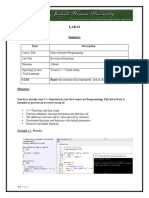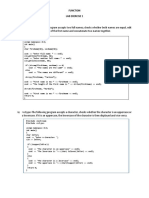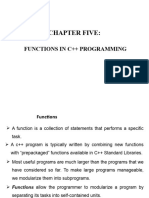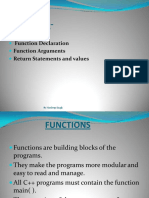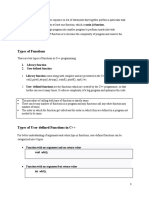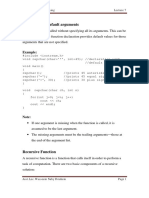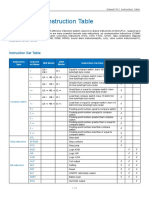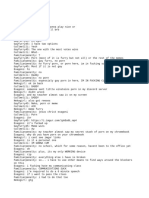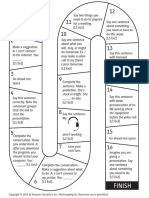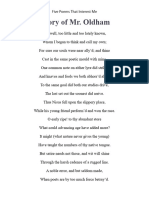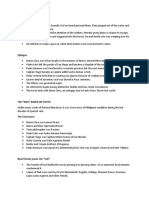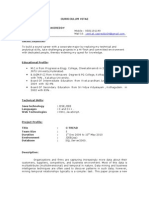0% found this document useful (0 votes)
53 views18 pages) Chapter One (: Fundamentals of Programming2 (Lab Manual)
This document is a lab manual for chapter one of a fundamentals of programming course in C++. It covers basic concepts of functions including definition, declaration, calling functions, and passing parameters by value and reference. It provides examples of each concept and exercises for students to practice functions. The examples demonstrate defining and calling simple functions to output text, perform calculations, and pass values between functions. The exercises involve defining functions to calculate mathematical operations like area of a circle or summing values.
Uploaded by
Ashenafi Workie DessalgnCopyright
© © All Rights Reserved
We take content rights seriously. If you suspect this is your content, claim it here.
Available Formats
Download as PDF, TXT or read online on Scribd
0% found this document useful (0 votes)
53 views18 pages) Chapter One (: Fundamentals of Programming2 (Lab Manual)
This document is a lab manual for chapter one of a fundamentals of programming course in C++. It covers basic concepts of functions including definition, declaration, calling functions, and passing parameters by value and reference. It provides examples of each concept and exercises for students to practice functions. The examples demonstrate defining and calling simple functions to output text, perform calculations, and pass values between functions. The exercises involve defining functions to calculate mathematical operations like area of a circle or summing values.
Uploaded by
Ashenafi Workie DessalgnCopyright
© © All Rights Reserved
We take content rights seriously. If you suspect this is your content, claim it here.
Available Formats
Download as PDF, TXT or read online on Scribd
/ 18















